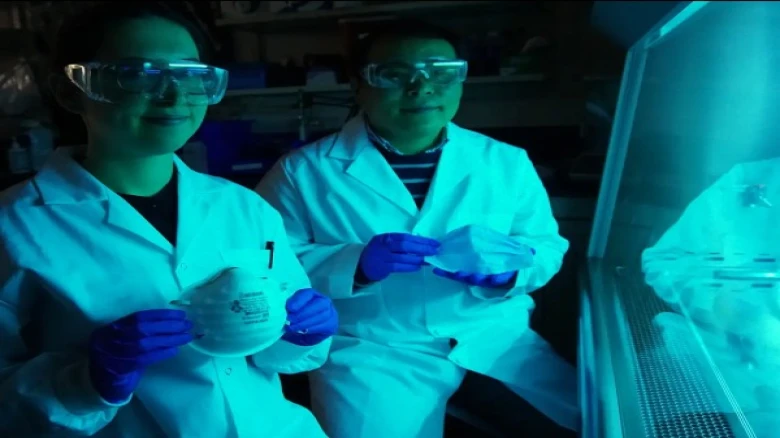Regional

Researchers have introduced a new N95 face mask that prevents the spread of COVID-19 and kills the SARS-CoV-2 virus upon contact.
Digital Desk: A novel N95 face mask that can not only stop the transmission of COVID-19 but also eradicate the SARS-CoV-2 virus has been created by experts.
According to the researchers, the mask may be worn for longer, resulting in less plastic waste because it won't need to be changed as frequently.
According to Edmund Palermo of the US-based Rensselaer Polytechnic Institute, "We believe the effort represents the first step toward longer-lasting, self-sterilizing personal protective equipment, such as the N95 respirator."
Palermo says it "may help prevent transmission of airborne viruses generally."
The team successfully grafted broad-spectrum antibacterial polymers onto the polypropylene filters used in N95 face masks in research published in Applied ACS Materials and Interfaces.
"N95 masks have active filtration layers extremely sensitive to chemical alterations. As a result, they may no longer perform like N95s since it can make them less effective at filtering. In addition, they are constructed of polypropylene, a challenging material to change chemically," said research expert Zha.
"The incredibly fine network of fibers in these masks presents another challenge because doing so could make it more difficult to breathe through them," added Zha.
The team used ultraviolet (UV)-initiated grafting to attach antimicrobial quaternary ammonium polymers to the fiber surfaces of nonwoven polypropylene fabrics. The team included US researchers from the Massachusetts Institute of Technology (MIT).
According to Zha, "The method we devised uses a relatively straightforward chemical to produce this non-leaching polymer coating that can kill viruses and bacteria by essentially rupturing their outer layer."
The scientists just utilized acetone and UV light to make their procedure simple to use and broadly accessible.
According to the researchers, the method does not require the creation of new polypropylene filters; rather, it may be used with ones that have already been produced.
When the procedure was performed directly on the filtration layer of N95 masks, the team did observe a reduction in filtering efficiency, but they said the fix was simple.
According to the researchers, the user might wear an unaltered N95 mask behind a second polypropylene layer with an antibacterial polymer.
"The risk of contracting infections brought on by airborne microorganisms is still present. It's time to improve the durability and performance of the materials we use to protect ourselves, "said Zha.
As per researchers, future mask producers might add the antibacterial polymer to the top layer.
Leave A Comment